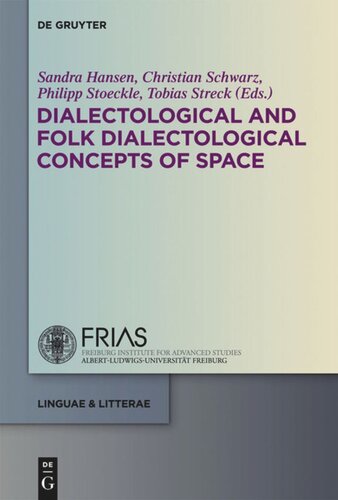

Most ebook files are in PDF format, so you can easily read them using various software such as Foxit Reader or directly on the Google Chrome browser.
Some ebook files are released by publishers in other formats such as .awz, .mobi, .epub, .fb2, etc. You may need to install specific software to read these formats on mobile/PC, such as Calibre.
Please read the tutorial at this link: https://ebookbell.com/faq
We offer FREE conversion to the popular formats you request; however, this may take some time. Therefore, right after payment, please email us, and we will try to provide the service as quickly as possible.
For some exceptional file formats or broken links (if any), please refrain from opening any disputes. Instead, email us first, and we will try to assist within a maximum of 6 hours.
EbookBell Team

4.8
94 reviewsIn variational linguistics, the concept of space has always been a central issue. However, different research traditions considering space coexisted for a long time separately. Traditional dialectology focused primarily on the diatopic dimension of linguistic variation, whereas in sociolinguistic studies diastratic and diaphasic dimensions were considered. For a long time only very few linguistic investigations tried to combine both research traditions in a two-dimensional design – a desideratum which is meant to be compensated by the contributions of this volume. The articles present findings from empirical studies which take on these different concepts and examine how they relate to one another. Besides dialectological and sociolinguistic concepts also a lay perspective of linguistic space is considered, a paradigm that is often referred to as “folk dialectology”. Many of the studies in this volume make use of new computational possibilities of processing and cartographically representing large corpora of linguistic data. The empirical studies incorporate findings from different linguistic communities in Europe and pursue the objective to shed light on the inter-relationship between the different concepts of space and their relevance to variational linguistics.